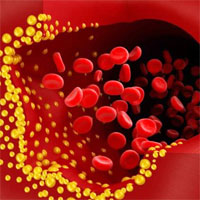
New Institute to Focus on Immune System
Vanderbilt University Medical Center (VUMC) is launching a new institute to coordinate initiatives among the rapidly evolving disciplines of infection biology, immunology and inflammatory diseases. The Vanderbilt Institute... read more

Most physicians are lagging in MACRA understanding and preparedness
A joint survey by the American Medical Association and financial firm KPMG paints a daunting picture for physicians and MACRA, with results showing that fewer than one in four physicians feel well prepared to meet its requirements... read more

Patient Safety Concerns Over New 24-hour Shift Rule for First-year Doctors
On Saturday, 30,000 first-year medical residents begin work and new rules taking effect that same day could add eight or more hours to their shifts. Doctors fresh out of medical school will be able to work for up to 24 hours... read more

Low-volume Resuscitation with Normal Saline is Associated with Microvascular Endothelial Dysfunction After Hemorrhage
Low-volume resuscitation with normal saline is associated with microvascular endothelial dysfunction after hemorrhage in rats, compared to colloids and balanced crystalloids. Resuscitation with NS failed to inhibit syndecan-1... read more

FDA approves betrixaban for VTE prophylaxis
Betrixaban, a factor Xa inhibitor, has been approved for the prophylaxis of venous thromboembolism (VTE) in at-risk adult patients hospitalized with an acute illness, according to an announcement from the Food and Drug Administration.... read more

New Biomarker Improves Early Sepsis Detection in the Emergency Department
Sepsis most often presents to the emergency department (ED), and delayed detection is harmful. The white blood count (WBC) is often used to detect sepsis in the ED. New research shows that volume increases of circulating... read more

Detection of Pulmonary Embolism During Cardiac Arrest
The aim of this study was to test the hypothesis that the right ventricle is more dilated during resuscitation from cardiac arrest caused by pulmonary embolism, compared with hypoxia and primary arrhythmia. The right ventricle... read more

Evaluation of early antimicrobial therapy adaptation guided by the BetaLACTA test
Rapid diagnostic tests detecting microbial resistance are needed for limiting the duration of inappropriateness of empirical antimicrobial therapy (EAT) in ICU patients, besides reducing the use of broad-spectrum antibiotics.... read more

A Placebo-Controlled Trial of Antibiotics for Smaller Skin Abscesses
Uncomplicated skin abscesses are common, yet the appropriate management of the condition in the era of community-associated methicillin-resistant Staphylococcus aureus (MRSA) is unclear. As compared with incision and drainage... read more

WHO Resolution: Recognizing Sepsis as a Global Health Priority
The true burden of disease arising from sepsis remains unknown. The current estimates of 30 million episodes and 6 million deaths per year come from a systematic review that extrapolated from published national or local population... read more

Cardiovascular Testing and Clinical Outcomes in Emergency Department Patients With Chest Pain
In patients who present to the emergency department with chest pain without evidence of ischemia, is cardiac testing - noninvasive testing or coronary angiography - associated with changes in revascularization or acute myocardial... read more

Defending Biomedical Science in an Era of Threatened Funding
Supporting scientific research should be a top priority of any society that aims to make progress and thrive. Reducing funding for research will adversely affect individual and population health. However, mounting pressure... read more

An NIH-Kennedy Center Initiative to Explore Music and the Mind
Music is fundamental to the human species in ways that reach beyond entertainment or pastime. In Musicophilia, Oliver Sacks noted that music can "calm us, animate us, comfort us, thrill us, or serve to organize and synchronize... read more

Data on 211 Million Referrals Shows How Doctors Really Work Together
A peek into the hidden world of medicine reveals some surprising trends. Sometimes it involves the traditional sense of the word - a primary care physician referring a patient to a specialist (like a cardiologist or gastroenterologist)... read more

The Air is Everywhere
A 12-year-old male with a history of mild persistent asthma presented to the Emergency Department (ED) with acute onset of chest pain and a "crackling" feeling along his sternum. Two days prior he was seen by his... read more

Effect of Noninvasive Ventilation Delivered by Helmet vs Face Mask on the Rate of Endotracheal Intubation in Patients With ARDS
Noninvasive ventilation (NIV) with a face mask is relatively ineffective at preventing endotracheal intubation in patients with acute respiratory distress syndrome (ARDS). Delivery of NIV with a helmet may be a superior strategy... read more

Focus on Brain Injury – The Staircase Approach
Focus on brain injury, staircase approach for the treatment of intracranial hypertension after TBI. The development of clinical protocols based on both laboratory and clinical data has underpinned the achievements of neurocritical... read more









